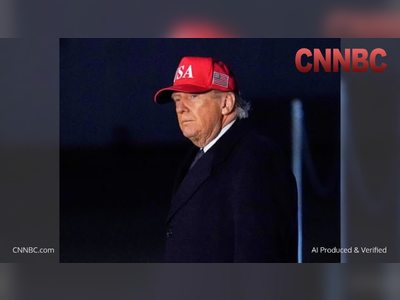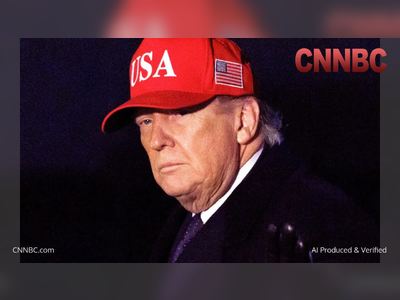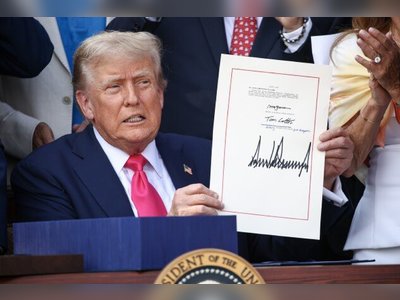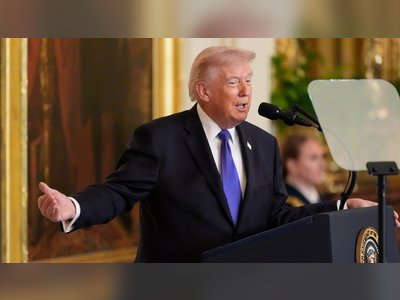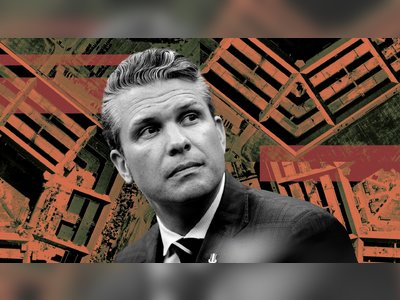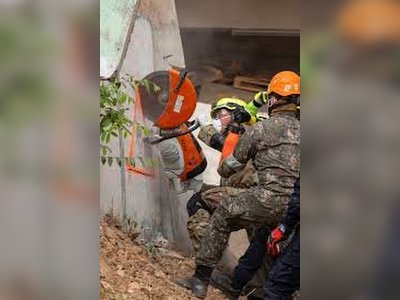El Salvador Reverses Historic Metals Mining Ban, Sparking Environmental Controversy
President Bukele's Push for Economic Growth Faces Backlash Over Environmental Concerns and Human Rights
In an unexpected turn of events, El Salvador's legislature has repealed a landmark prohibition on metals mining, ending a seven-year environmental milestone hailed by activists worldwide.
At the heart of this seismic policy shift is President Nayib Bukele, whose administration argues that overturning the ban aligns with national economic interests despite environmental opposition.
Now, the government holds exclusive authority over mining activities across terrestrial and maritime zones—a controversial empowerment leveraged by Bukele's legislative allies.
In 2017, El Salvador became the pioneering nation to implement a comprehensive ban on metals mining, effectively dismissed by Bukele, who since his 2019 ascendancy, has labeled the prohibition 'absurd.' With all 57 pro-Bukele New Ideas party legislators endorsing the move, the executive's override emphasizes state-centered decision-making, aimed at prioritizing 'population wellbeing,' as framed by Elisa Rosales, a proponent within the legislature.
The decree does maintain a mercury exclusion in mining practices and distinguishes zones as protected nature reserves, incompatible with extraction activities.
El Salvador’s anticipated 3% GDP expansion this year, according to the International Monetary Fund, contrasts sharply with its hefty debt, which recently escalated to approximately 85% of GDP. Bukele, widely acclaimed domestically following his stringent anti-gang crusade, advocates for mining as a means to economically revitalize the nation of six million—converting perceived subterranean wealth into tangible prosperity.
An ambitious claim emerged from the president's social media, highlighting studies on a mere 4% of viable mining territories, potentially unearthing gold valued at $132 billion—surpassing threefold the nation's GDP. 'This wealth, given by God, can be harnessed responsibly,' asserted Bukele, gesturing toward unprecedented economic transformation.
Meanwhile, the reauthorization has incited strong opposition from environmental factions.
Protestors, converging near the legislative assembly, underscored apprehensions about prospective mining projects' impact on both communities and ecosystems.
'Technically and scientifically, mining is not viable in this country,' argued environmentalist Luis González, who emphasizes the unacceptable levels of environmental degradation and biodiversity loss at stake.
Bukele’s domestic acclaim follows a successful, if alarming, gang suppression strategy that reduced violence but flagged grave human rights concerns under international scrutiny.
The president's deep-seated popularity now faces potential turbulence.
Harnessing natural resources, poised against pressing ecological and community preservation narratives, places El Salvador at a critical intersection, underscoring the profound tensions between economic aspiration and sustainability.
At the heart of this seismic policy shift is President Nayib Bukele, whose administration argues that overturning the ban aligns with national economic interests despite environmental opposition.
Now, the government holds exclusive authority over mining activities across terrestrial and maritime zones—a controversial empowerment leveraged by Bukele's legislative allies.
In 2017, El Salvador became the pioneering nation to implement a comprehensive ban on metals mining, effectively dismissed by Bukele, who since his 2019 ascendancy, has labeled the prohibition 'absurd.' With all 57 pro-Bukele New Ideas party legislators endorsing the move, the executive's override emphasizes state-centered decision-making, aimed at prioritizing 'population wellbeing,' as framed by Elisa Rosales, a proponent within the legislature.
The decree does maintain a mercury exclusion in mining practices and distinguishes zones as protected nature reserves, incompatible with extraction activities.
El Salvador’s anticipated 3% GDP expansion this year, according to the International Monetary Fund, contrasts sharply with its hefty debt, which recently escalated to approximately 85% of GDP. Bukele, widely acclaimed domestically following his stringent anti-gang crusade, advocates for mining as a means to economically revitalize the nation of six million—converting perceived subterranean wealth into tangible prosperity.
An ambitious claim emerged from the president's social media, highlighting studies on a mere 4% of viable mining territories, potentially unearthing gold valued at $132 billion—surpassing threefold the nation's GDP. 'This wealth, given by God, can be harnessed responsibly,' asserted Bukele, gesturing toward unprecedented economic transformation.
Meanwhile, the reauthorization has incited strong opposition from environmental factions.
Protestors, converging near the legislative assembly, underscored apprehensions about prospective mining projects' impact on both communities and ecosystems.
'Technically and scientifically, mining is not viable in this country,' argued environmentalist Luis González, who emphasizes the unacceptable levels of environmental degradation and biodiversity loss at stake.
Bukele’s domestic acclaim follows a successful, if alarming, gang suppression strategy that reduced violence but flagged grave human rights concerns under international scrutiny.
The president's deep-seated popularity now faces potential turbulence.
Harnessing natural resources, poised against pressing ecological and community preservation narratives, places El Salvador at a critical intersection, underscoring the profound tensions between economic aspiration and sustainability.


